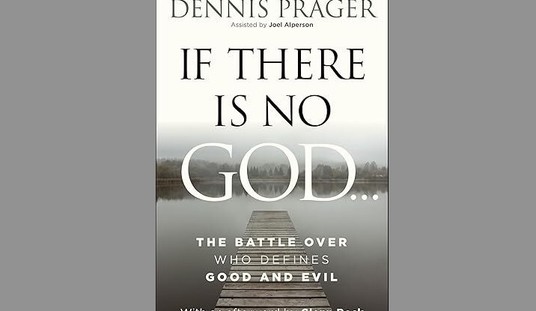Zohran Mamdani is the odds-on favorite to become the next mayor of New York, and that’s bad news, because the man is, among other things, an out-and-out Communist (although he himself, of course, denies it) who doesn’t think there should be any billionaires and wants to establish “free” grocery stores, that is, groceries that working people pay for so that people who don’t work can enjoy goods they didn’t pay for. He has also sparked controversy by refusing to denounce the phrase “Globalize the Intifada,” which looks to any sane person like a call for violence against Jews all over the world. Now even Al Sharpton, who is no stranger to charges of antisemitism, has had enough.
Fox News reported Monday that Sharpton departed from his usual practice and gave an MSNBC panel some common sense regarding Mamdani: “He’s running for mayor of New York,” noted the renowned alleged clergyman and longtime race agitator. “You need to take off the table, ‘Do you support international intifada?’ Period. Not go around it. I understand you don’t want to be forced into something, but I don’t think that’s what he stands for from what he said to us. And he should say that outright.”
Sharpton hastened to assure his comrades that he didn’t think Mamdani was antisemitic, but just that the candidate had to make that fact clear to voters: “Well, I think he definitely denounced from his speech antisemitism and Islamophobia, but let’s deal directly with it. Let’s not skirt around the issue. We’re not talking about something subtle here.” Indeed. Over a thousand Israelis were killed in the First and Second Intifadas. Nothing subtle about that.
On Sunday, Kristen Welker of “Meet the Press” asked Mamdani: "Do you condemn that phrase, ‘Globalize the intifada?'" Mamdani’s reply was slick: "That’s not language that I use. The language that I use, and the language that I will continue to use to lead this city is that which speaks clearly to my intent, which is an intent grounded in the belief in universal human rights."
Welker had not asked Mamdani if he condemned the phrase. She asked him if he condemned it. When previously asked the same question, Mamdani answered: “To me, ultimately, what I hear in so many is a desperate desire for equality and equal rights in standing up for Palestinian human rights.” And that leads to the question that no one has as yet asked Mamdani. As Mamdani refuses to denounce the phrase “Globalize the Intifada,” how exactly does he see this “desperate desire for equality and equal rights” playing out except by violence? What exactly does he think an Intifada is, other than the indiscriminate violence against and murder of Jewish civilians, as it has been in the past?
Sharpton is no stranger to violence against Jewish civilians. Back in 1991, according to NPR, “a car accident in which a Hasidic driver killed 7-year-old Gavin Cato, who was black, sparked outrage. Rioting erupted and lasted for three days, during which a rabbinical student, Yankel Rosenbaum, was fatally stabbed in an attack by a group of young black men. An estimated 43 civilians and 152 police officers were injured.” Sharpton injected himself into the middle of the unrest, leading “a march of some 400 protesters through the neighborhood. He and his followers chanted ‘No justice, no peace.’ Some marchers were heard yelling anti-Semitic epithets.” A few days before the riots, Sharpton famously quipped, “If the Jews want to get it on, tell them to pin their yarmulkes back and come over to my house.”
Related: It’s Not Pride Month, It’s Envy Month
Sharpton professes to have mellowed now, saying that he was once in the position Mamdani is in now: “I remember 20, 30 years ago. I said things – nothing like endorsing violence – but that was offensive to Jews, offensive to gay people. Mrs. Coretta Scott King – Martin Luther King’s widow – said to me, ‘Al, you cannot take words lightly.’ I said, ‘But I was just slanging.’ ‘No you can’t do it.’”
Mamdani isn’t “just slanging.” In fact, he doesn’t even use the controversial phrase. It’s clear, however, from his refusal to denounce it that he wants to court the support of those who do use it, and isn’t concerned about how precarious Jewish New Yorkers may feel their position in the city is becoming. How he will keep them, as well as the city’s wealthy, whom he is likely depending upon to pay for his socialist schemes, from leaving his socialist paradise once he becomes mayor is anybody’s guess.










